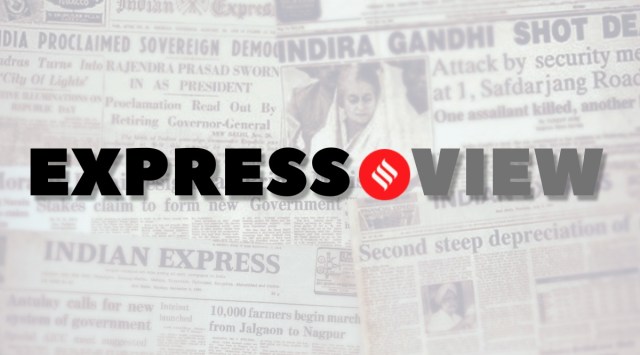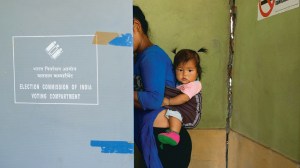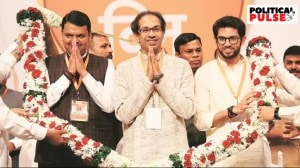- India
- International
Maldives President Solih’s visit came in a fraught moment in ties between the two countries. Delhi must tread carefully
Over the last four years, India has provided financial assistance for a slew of projects, both as grant and in credit lines. The biggest of them, the $500m Greater Male Connectivity Project, was inaugurated during Solih’s visit. India
 The Solih government's India First policy has been a real game-changer in bilateral ties, but keeping with a pattern in the neighbourhood, it has had an inevitable domestic political fallout.
The Solih government's India First policy has been a real game-changer in bilateral ties, but keeping with a pattern in the neighbourhood, it has had an inevitable domestic political fallout.The visit of the Maldives President, Ibrahim Solih, to Delhi gave both sides the opportunity to reiterate the importance of the bilateral relationship. For India, which has been Maldives’s first responder for decades but saw itself being edged out by the proximity of its previous government to Beijing, the Solih presidency has been crucial to restoring relations with the strategically located Indian Ocean neighbour. For the Maldives, the realisation is acute, especially after seeing Sri Lanka become convulsed by crisis, that China’s large pockets are a trap best avoided.
Over the last four years, India has provided financial assistance for a slew of projects, both as grant and in credit lines. The biggest of them, the $500m Greater Male Connectivity Project, was inaugurated during Solih’s visit. India also provided a further credit line of $100m for the completion of unfinished infrastructure projects. Under its Neighbourhood First policy, as well as SAGAR (Security and Growth for All in the Region), defence and security co-operation between the two countries has grown — bilaterally, as well as in concert with the Colombo Security Conclave, a grouping of three nations that is now growing to encompass other Indian Ocean and South Asian countries. The cyber security pact signed between the two countries during the visit also underlined concerns over the rise of Islamist fundamentalism in the archipelago. Maldives came face to face with this when some 300 of its citizens joined ISIS back in 2014. The Maldivian police blamed Islamist extremists for the April 2021 attempt to assassinate the former president, Mohamed Nasheed.
The Solih government’s India First policy has been a real game-changer in bilateral ties, but keeping with a pattern in the neighbourhood, it has had an inevitable domestic political fallout. The impact of this cannot be underestimated, particularly in the light of next year’s presidential election. The disruption of the Yoga Day event in Male shows the lengths that some elements are willing to go to in order to undermine the government and its ties with India. The Solih government has robustly countered former president Abdulla Yameen’s “India Out” campaign that has targeted defence ties in particular. It has even gone so far as to ban anti-India protests. But the pressure is starting to tell, as is evident from the statement the government issued, almost reluctantly, on the BJP spokesperson’s remarks on Prophet Mohammed recently. The infighting in the Maldivian Democratic Party which has pitted Solih against Nasheed in an unseemly battle is also not a good sign. Against this fraught background, India must tread with caution and ensure that there is no room for misinterpretation of its actions in the Maldives.
EXPRESS OPINION
More Explained
Apr 19: Latest News
- 01
- 02
- 03
- 04
- 05
































